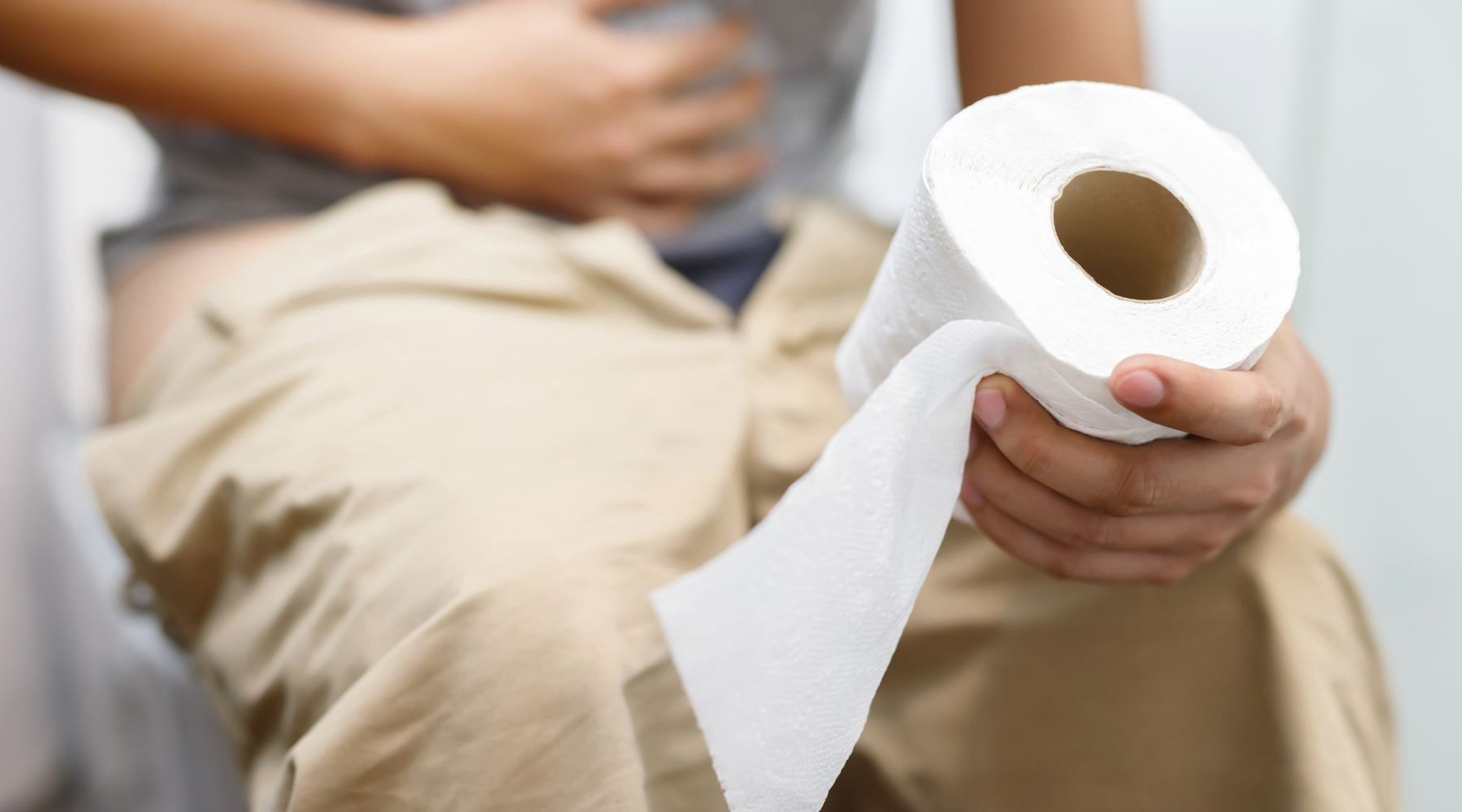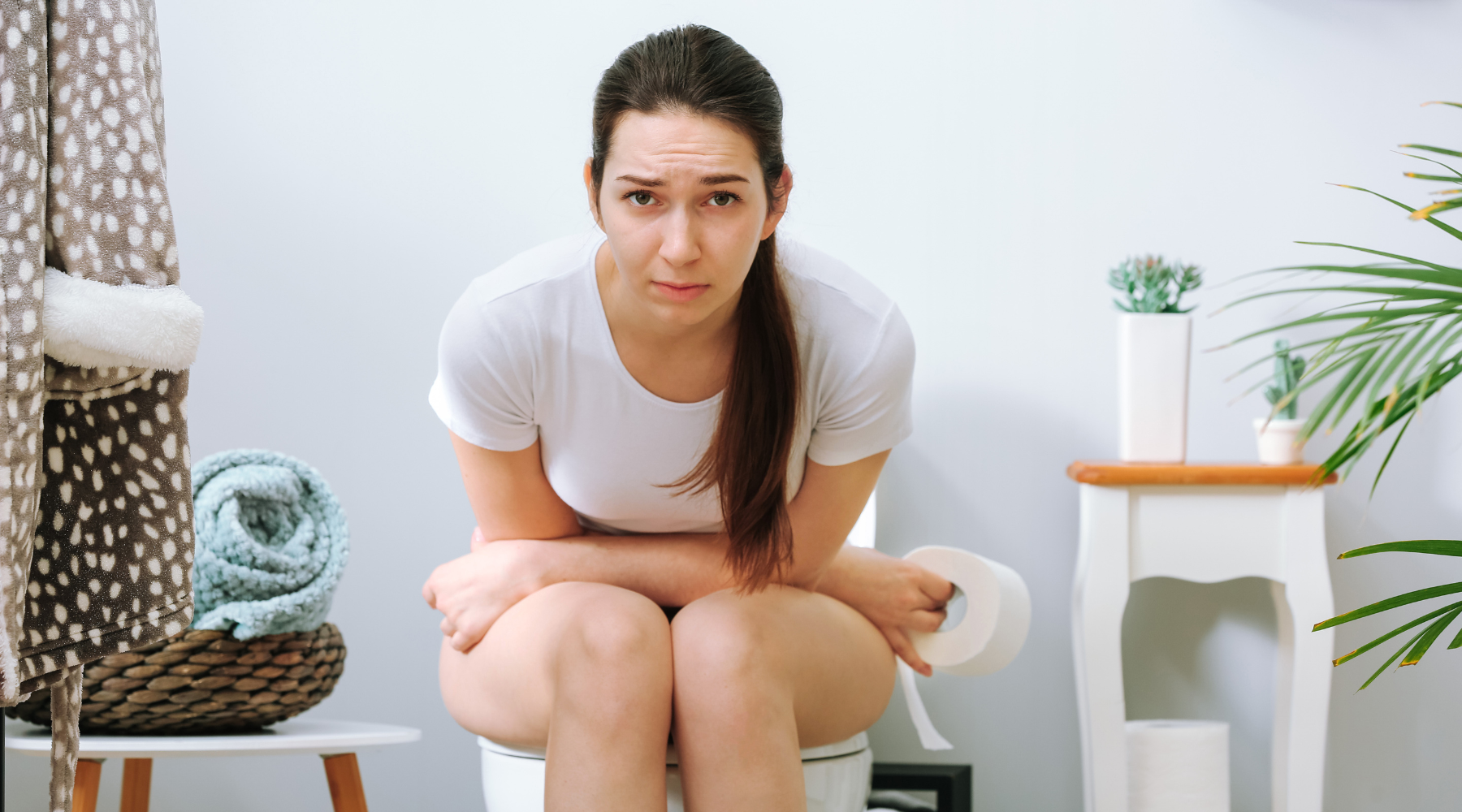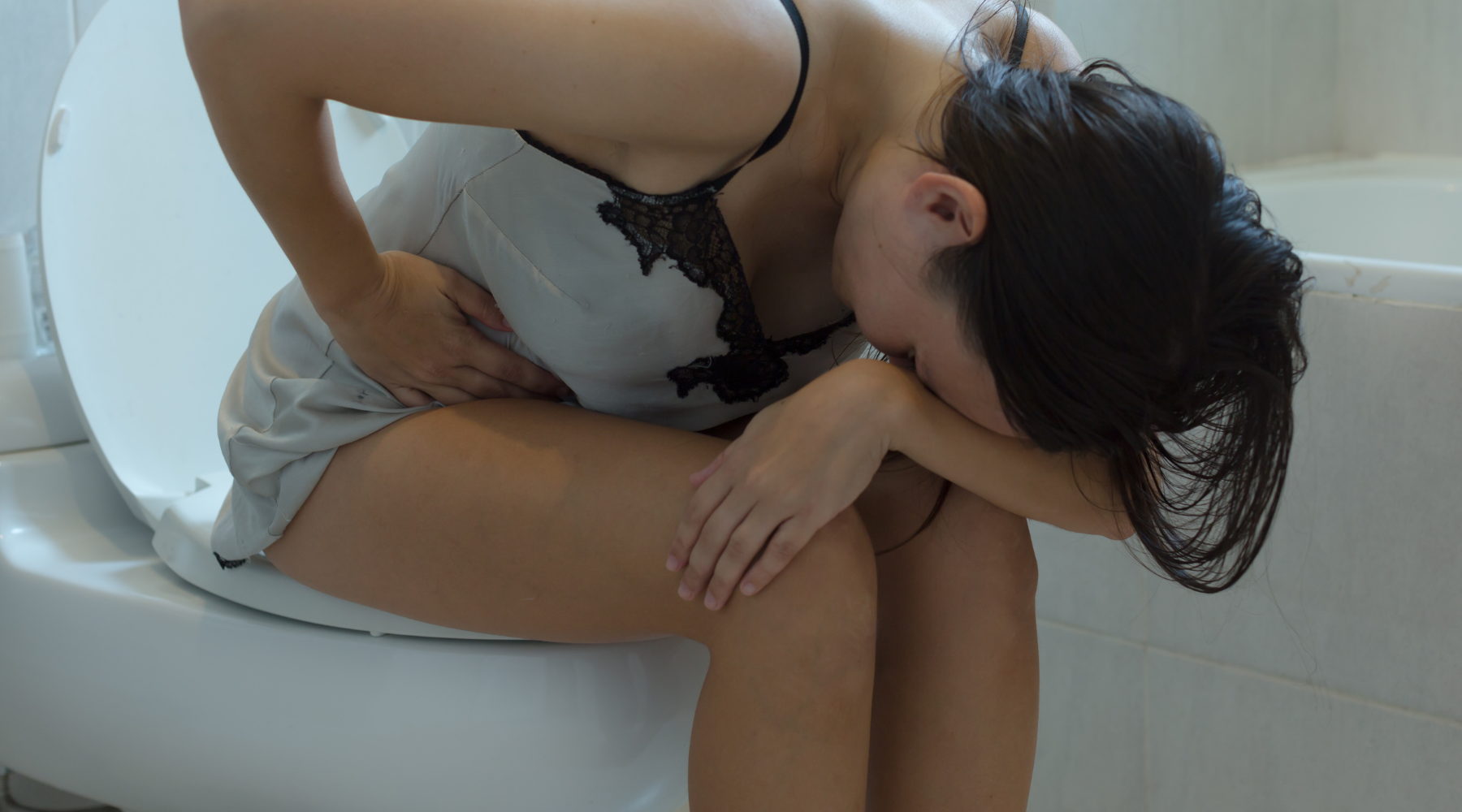Bowel movements, or lack thereof, are often a topic swept under the rug due to embarrassment. Constipation can be described at best as slightly uncomfortable and at worst downright debilitating. It is defined as less than 3 bowel movements per week with normal regularity ranging from anywhere between 3 bowel movements daily to 1 bowel movement every 3 days. Many factors can lead to constipation such as:
- Dehydration
- Lack of exercise
- Medication side effects
- Medical conditions
- Chronic use of laxatives
- Repeatedly ignoring the urge to go
- Surgery
- Stress
Constipation left untreated can lead to serious medical consequences such as a bowel obstruction, which may require surgical intervention. Extreme circumstances like this are not uncommon in a clinical setting. It is always advisable to make your health provider aware of any irregular health issues you may be experiencing, including the irregularity of your bowel movements. Below is a list of natural remedies to help proactively prevent constipation.
Fill up on Fiber
There are two types of fiber:
soluble and
insoluble. Soluble fiber absorbs water and is found in foods such as oats, beans, legumes, flaxseed, psyllium, oranges, and apples to name a few. Insoluble fiber adds bulk to the stools and is found in the skins of fruits and vegetables, whole grains, and seeds. Soluble fiber has been found to be most effective in treating constipation but a combination of both in the diet is ideal. The adequate intake (AI) recommendations for adult men is 38 grams per day and 25 grams per day for adult women. If your current intake does not meet these guidelines, it is recommended to increase fiber intake by 5 grams daily one week at a time. This slow increase in fiber gives your body time to adapt. Adding significantly larger portions of fiber too quickly into the diet can cause abdominal discomfort, gas, bloating, and pain. Every meal you consume, snacks included, should have at least one fibrous food. When building a meal, people often prioritize the protein sources as the primary attraction and the vegetables are the sideshow. The opposite approach should be taken. The non-starchy vegetables should comprise of half your plate, with the other half equally split between your lean protein source and your healthy whole-grains. By filling up on foods like vegetables, fruits, and whole grains at all meals, this should leave little room for foods lacking in nutrient density such as processed, refined foods benefitting not only your bowel habits but your overall health. Below is a list of different fiber-filled food combinations to consider adding to your daily routine.
- Start your morning with a bowl full of oatmeal with chopped apple slices (skin on)
- Create a burrito bowl with beans, brown rice, and vegetables
- Sip on a fruit smoothie with added flaxseed or psyllium
- Dig into a hearty vegetable and lentil soup
Ditch the Very Low Carbohydrate Diet
Very low carbohydrate diets are all the rage these days. One allure to this fad is the rapid weight loss experienced during the beginning phase. The initial quick drop in pounds is a result of lost water weight. The body is able to store a certain amount of carbohydrate for reserve energy. When carbohydrates are severely limited in the diet these stores are depleted. Carbohydrate binds to water. The lack of carbohydrates to help retain fluids results in frequent urination and loss of total body water. These diets often encourage a high volume of fluid intake to help maintain adequate hydration. Carbohydrates are found in fruits, vegetables, grains, dairy, legumes, and sugar-containing foods and beverages. Completely omitting carbohydrates from the diet removes important fiber-containing sources such as fruits, vegetables, grains, and legumes. A common side effect of this dietary pattern is constipation. If you still prefer following a lower carbohydrate lifestyle, ensure that the sources you do choose to consume are very high in fiber. As fiber is not absorbed by the body you can subtract the daily amount of fiber you consumed by the total number of carbohydrates consumed to determine your net carbohydrate intake.
Stay Hydrated
Dehydration can cause constipation. The solution, drink more water. Many people drink significantly less water than recommended. The AI recommendations for adult men is 3.7L (approximately 15 US cups) and 2.7L (approximately 11 US cups) for women. These recommendations are generalized among the population and do not take into account for body size, gender, activity level, etc. A tool you can use to approximate your personal requirements is to take your weight in pounds and divide that number in half. The resulting number of this equation is the number of fluid ounces you should consume daily (not taking into account your activity level or environmental factors such as heat). Water helps soften the stool making it easier to pass (i.e. less straining). All fluids provide some level of hydration but consumption of water as the primary choice is preferred for optimal health. Below is a list of different recommendations on incorporating more water throughout your day if your current intake is inadequate.
- Drink 1 glass of water right when you wake up in the morning
- Drink 1 glass of water before each meal
- Set a timer on your phone every 2-3 hours to remind yourself to hydrate
- Purchase a reusable water bottle and leave it in plain sight during the day as a reminder to drink up
Psyllium Husk Fiber
Psyllium is a unique type of soluble fiber such that it has a laxative effect. It is derived from the seeds of the herb Plantago Ovata. The husk of the psyllium binds to undigested food while simultaneously drawing in water creating a bulk-forming laxative effect. Make sure you drink adequate water while taking this supplement. Other health claims surrounding the ingestion of psyllium fiber include lowering cholesterol as a soluble fiber, possible weight loss related to the bulk-forming effect, and heart health. This powder can be versatile and sprinkled over soup, yogurt, oatmeal, smoothies, and water. The product thickens quickly, so consume your food or beverage immediately after adding.
Get Moving
Increased exercise, specifically aerobic exercise, helps increase blood supply to the bowels and increases regularity. The current recommendations for exercise are to participate in 30 minutes of moderate-intensity aerobic activity for at least 5 days per week. If you find that your busy schedule makes it difficult to consolidate 30 minutes daily, try breaking this time up throughout the day. When possible also consider adding extra movement into your current routine to encourage better blood flow throughout the day. Below is a list of suggestions to incorporate into your daily routine.
- Given the choice, always take the stairs
- Park your car as far away in the lot as possible to get some extra steps
- Wake up 10 minutes earlier and start your morning with a brisk walk/jog
Patience is a Virtue
The best things in life are worth waiting for, this includes a bowel movement. In today’s fast-paced environment everything often feels urgent and rushed. This should not apply to your bathroom routine. Allow for as much time as you need on the toilet. When the urge to have a bowel movement arises, do not resist it. Often ignoring this urge can lead to the development of chronic constipation. Below is a sample day of incorporating all the above-mentioned suggestions.
| 6:00am |
Wake up, drink 1-8oz glass of water |
| 6:05am |
10-minute brisk run, jog or walk |
| 6:15am |
Drink 1-8oz glass of water Breakfast: bowl of oatmeal with roughly chopped apples (skin on), with a dollop of peanut butter, sprinkled with cinnamon and Mifibe psyllium powder *Take time to relax and enjoy your breakfast |
| 7:00am |
Commute to work or school *Park the farthest away you can (safely) in the parking lot **If you can opt to walk or bike to work instead this is preferred |
| 8:00am |
Drink 1-8oz glass of water |
| 9:30am |
Drink 1-8oz glass of water, Snack: carrots with hummus |
| 12:30pm |
Drink 1-8oz glass of water Lunch: grilled chicken salad with spinach, tomatoes, corn, with a side of quinoa and your choice of dressing |
| 12:50pm |
Stretch your legs and go for a 5-10-minute walk to help you digest your lunch (bonus points if you take the stairs) |
| 2:30pm |
Drink 1-8oz glass of water |
| 3:30pm |
Drink 1-8oz glass of water Snack: celery with peanut butter and raisins |
| 5:30pm |
Drink 1-8oz glass of water 10-15-minute-high intensity workout session (at home or in the gym) |
| 6:30pm |
Drink 1-8oz glass of water Dinner: Sweet potato and black bean enchiladas (with a whole wheat tortilla wrap) |
| 7:00pm |
Stretch your legs and go for a 5-10-minute walk to help digest your dinner |
| 8:00pm |
Put your work away for the day and relax, read a book, listen to calming music, etc. |
Often health-related issues can be caused by the result of our daily habits. Practicing the above-mentioned suggestions regularly should be adequate to address your constipation. If they are not you should seek the advice of your medical professional for guidance.
Disclaimer:
This article is not intended to replace the advice of your medical care provider and is meant for educational information only. Mahan, L. Kathleen, and Sylvia Escott-Stump.
Krause’s Food and Nutrition Therapy. Saunders/Elsevier, 2008. Matarese, Laura E., et al.
The Health Professional’s Guide to Gastrointestinal Nutrition. Academy of Nutrition and Dietitics, 2015. “Read ‘Dietary Reference Intakes for Water, Potassium, Sodium, Chloride and Sulfate’ at NAP.edu.”
National Academies Press: Open Book,
https://www.nap.edu/read/10925/chapter/6#p2000cb269970086002.


